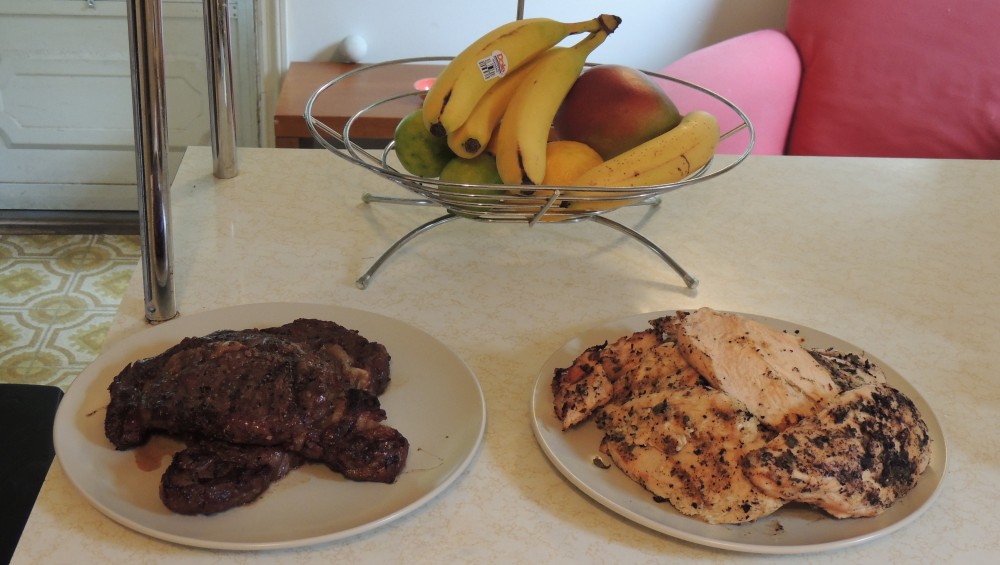I first started to actually think about what I ate when I was a graduate student (so sometime around 1995-ish). I had been diagnosed with endometriosis, which is a disease that affects women and is chronic, unpleasant, and for which there are a limited number of treatment options. The problems flare up during normal hormonal cycling, but could potentially be exacerbated by molecules that mimic natural hormones. In the early 1990’s, research was just beginning on these hormone mimics, called endocrine disruptors, which include a variety of environmental pollutants such as pesticides. Despite the limited amount of information available at that time, I understood the arguments clearly and decided to change my lifestyle to avoid these endocrine disruptors. The first step along this journey was to start to eat organic food. This was a tremendous sacrifice because organic food was outrageously expensive, and I was making a miniscule salary. However, I’d rather be healthy than rich, so I invested my money in my diet. It was the right decision for me, and despite some further problems with the endometriosis, I do think that the altered diet helped stave off some complications and alleviate symptoms.
More recently, I’ve started to focus on eating a Paleo diet (with organic food incorporated when feasible). People often ask me why I think a Paleo diet is good. I am a biochemist, but it doesn’t take a Ph.D. to figure out that fruits, vegetables, and lean meats are a good starting point for a healthy diet, and a diet of sugar and carbs is not. Also, I have become increasingly concerned with the additives in food that are not, in fact, food. They are chemicals that have been synthesized in labs and then marketed to the public (a bit like Willie Wonka but less altruistic). Many scientific studies have now shown that a variety of the chemicals added to (or used as) foods can have detrimental side effects. So, it also makes sense to me that we need to get back to eating ‘actual’ food as opposed to ‘synthetic’ food. For me this encapsulates the core of the Paleo diet – lots of good meat, fruit and veggies without all the sugar and synthetic garbage. Simple.
There is a lot of debate as to what foods should be allowed on a Paleo diet. In some cases it’s very clear, but in others the jury is still out and it depends on who you ask. So, in this blog, when I post something that has an ingredient that is debatable, I’ll list it in parenthesis and then you can decide if that falls within your idea of Paleo.
